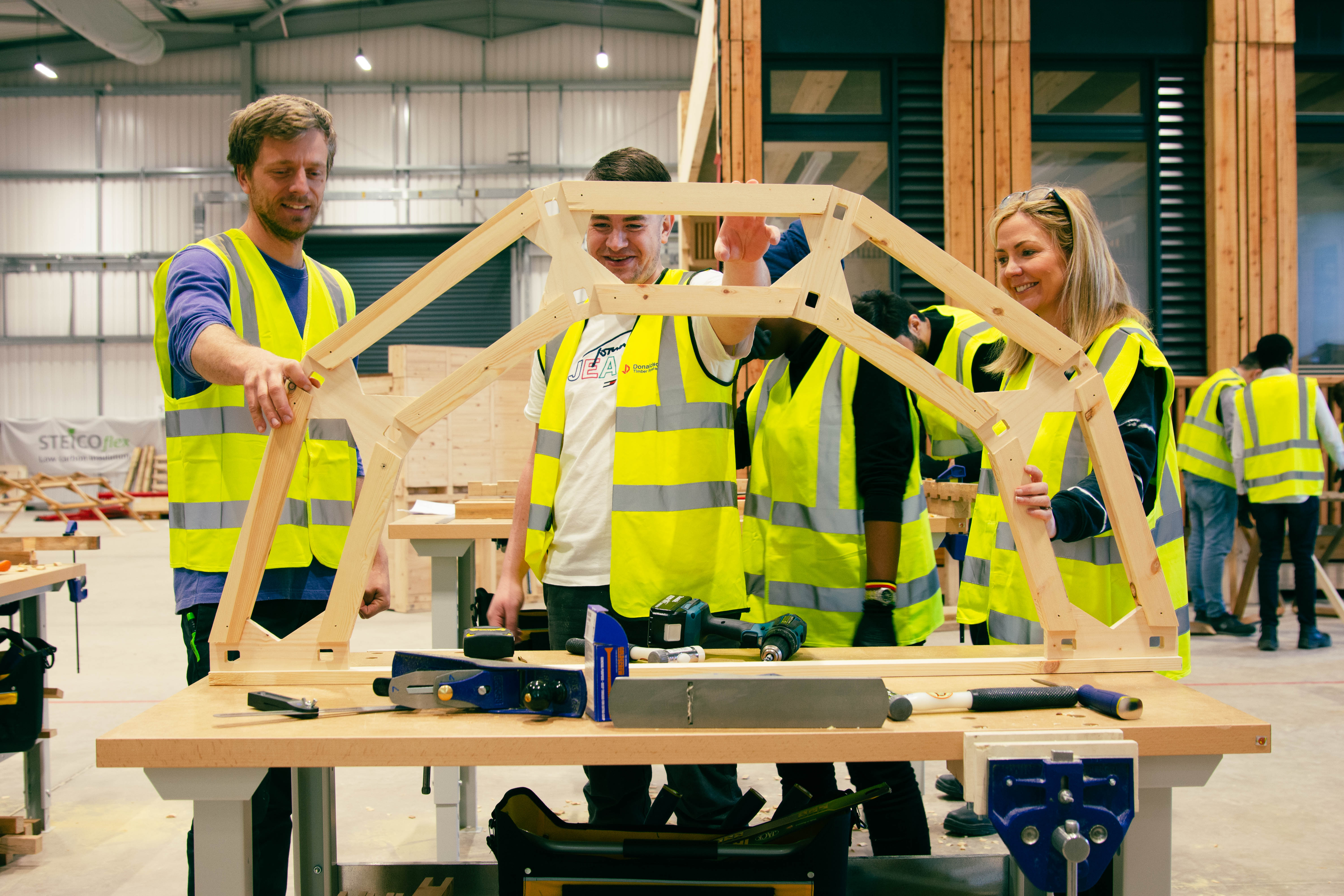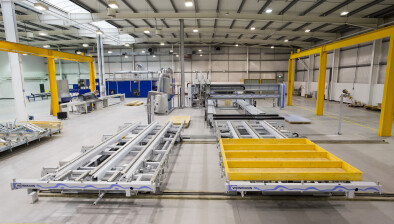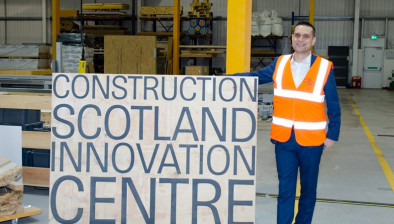CITB awards £430k impact funding to accelerate low-carbon timber construction

The Construction Industry Training Board (CITB) has awarded £430k from its flagship Industry Impact Fund to develop a comprehensive industry training programme to accelerate timber construction in the UK.
The funding will be used to develop training content and courses to improve pathways for those entering the construction industry, as well as help upskill and re-skill existing construction workers and equip them to meet the needs of the rapidly growing timber construction sector. It will also help support the aims of the Timber in Construction Roadmap, a Government-Industry partnership launched earlier this year.
The funding bid was developed by a consortium of industry partners led by CITB levy-payer Donaldson Offsite.
The consortium includes education institutions Edinburgh Napier University and New Model Institute for Technology and Engineering (NMITE), the construction innovation centre ‘Built Environment - Smarter Transformation’ (BE-ST), along with industry bodies Structural Timber Association (STA), Timber Development UK (TDUK).
Vanessa Freeman, head of grant and funding projects at CITB, said: “CITB is very proud to be working alongside industry partners to support the timber sector to train, develop and retain its workforce. It’s essential to encourage collaboration across the industry to tackle skills shortages, improve diversity, and future-proof the workforce.
“Timber construction is one of the fastest growing construction sectors, driven by a need for carbon reduction across the built environment. This funding will help bridge the skills gap that exists in this and other parts of the construction industry to help the timber sector achieve its potential.”
Alex Goodfellow, CEO of Donaldson Offsite and chair of the Confederation of Timber Industries (CTI), said: “We’re incredibly proud to have led this bid on behalf of the timber construction sector and deeply grateful to the CITB for their support. It’s been inspiring to see such a broad cross-section of the supply chain come together behind this initiative — a clear demonstration of how important timber construction is to the future of our industry.
“Meeting the UK Government’s ambition for sustainable housing will only be possible if we tackle the growing skills gap. The way to do that is through real investment in people — by improving training, strengthening education, and creating clearer pathways into timber construction.
“This project has the potential to make a lasting impact. By establishing a joined-up approach to skills development across the sector, we can build a more competent, confident and competitive workforce — one that’s ready to deliver the sustainable homes our country needs.”
The project, starting in October 2025 and running for 24 months, will understand deeply the gaps industry is experiencing around existing learning materials and delivery. From this gap analysis, the aim is to develop robust, effective accredited courses, whilst creating clear career pathways to upskill and reskill the workforce, focusing on the management and on-site delivery of offsite manufactured modern methods of construction (MMC) using structural timber.
The impact and benefits of the project will:
- Address the critical workforce shortages in the UK construction industry as the demand for timber MMC grows, by upskilling and reskilling the workforce.
- Increase the competency of the workforce, helping to meet the housing targets set by the UK government and support the delivery of a net-zero carbon built environment.
- Promote the construction industry and its innovative focus to a wider, more diverse workforce, attracting new talent to an industry that is evolving for the future.
Professor Robert Hairstans, Edinburgh Napier and NMITE, who chairs the Timber in Construction Skills Group, said: “This project has been developed hand in hand with the sector and its agencies to ensure it aligns with industry need. The ambition is to create a scalable and sustainable model that integrates timber construction training into the national education system, ensuring the industry can meet future demands.
“If we are to have the scale of impact required, we need to work collaboratively and quickly to expand what works and implement what doesn’t exist. By creating pathways for people to progress and providing educational content which is practical and flexible we can enable a more diverse workforce which is future ready.”
Over the course of the two years, the project will establish new courses and integrate with accredited programmes scaling up timber MMC delivery via regional training centres such as CITB-accredited training organisations, colleges and universities expanding the network of the consortium.
The approach will build upon existing training offerings like the award-winning NMITE Timber Technology Engineering and Design short courses and Structural Timber Association Installer Training Scheme to provide construction project management and other necessary skills to achieve future regulatory drivers such as the UK’s Future Homes Standard (FHS) and PAS 8700:2025 Modern methods of construction for new-build residential properties.
By ensuring alignment with professional standards and qualifications including the Chartered Institute of Building (CIOB) competence framework for project managers and Timber Development UK Skills Action Plan – which contains a Timber in Construction Competence Framework – the educational content created will underpin professional standards and qualification allowing progression pathways towards or maintenance of professional memberships.
By establishing regional hubs and training trainers at centres around the country the project will create scalable impact in order to meet demand.

















